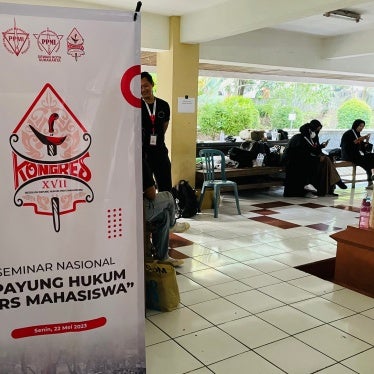It was an extraordinary sight for Indonesia: On August 28, protesters set up tents outside a government guesthouse in Yogyakarta city where the president, Joko Widodo, known as Jokowi, was staying the night after inaugurating a local market. Hundreds of protesters, surrounded by police officers and presidential guards, shouted slogans accusing the president of corruption and nepotism.
Street protests have erupted in at least 16 cities in Indonesia, including the capital, Jakarta, after President Jokowi’s ruling coalition invited their allies to meet in parliament on August 22 to amend the election law and allow candidates below the age of 30 to run for office. There’s only one candidate in the November 27 elections under 30: 29-year-old Kaesang Pangareb, the president’s youngest son, who is running for deputy governor of Central Java.
Just two days earlier, Indonesia’s Constitutional Court had rejected a request permitting politicians younger than 30 to run for office.
When Jokowi sought to bypass the courts through legislative means, college students and union workers accused him of nepotism. A coalition of 27 civil society organizations alleged he was placing his sons and son-in-law in government positions without a fair election process. In February, Jokowi had allegedly bent election rules to help his eldest son, Gibran Raka, 36, successfully contest the presidential election as Prabowo Subianto’s running mate.
On August 22, protesters in Jakarta surrounded the parliament building, forcing legislators to move the meeting to a hotel. Two days later, with protests raging, the parliamentarians decided not to proceed with the amendment. The police arrested at least 300 protesters, mostly high school students, accusing them of attacking the police and destroying the fence of the parliament compound. Police and military officers assaulted at least 11 journalists, seizing their phones. A Tempo journalist was taken to a police station and forced to delete his video of the protests. Police also beat a Kompas journalist who had witnessed the arrest.
Security forces used tear gas and water cannons to disperse protests in Semarang, Central Java, and in Makassar, South Sulawesi. In some other places, the police also hit peaceful protesters with batons. Several suffered injuries and were hospitalized. Police obstructed legal aid lawyers from meeting the detained protesters.
The authorities should impartially investigate the reports of police violence and appropriately punish those involved, including their commanding officers.









